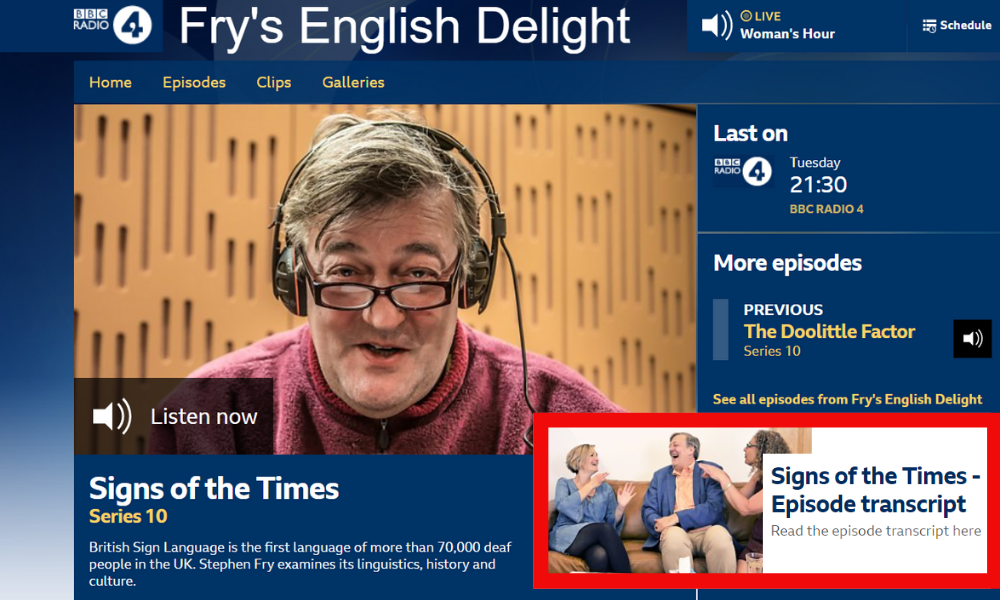Signs of the Times – Stephen Fry for BBC Radio 4 Aired on Tuesday 27th August 2019
Link to audio & transcript: https://www.bbc.co.uk/programmes/m0007wv2
Stephen Fry finds out what British Sign Language can tell us about language in general.
British Sign Language is the preferred first language of more than 70,000 deaf people in the UK. It’s also a language culture with a surprisingly short history as an official language. Records show the existence of the language back in the 1500s but the term wasn’t used by linguists until the late 1970s and it was only recognized officially by the British Government in 2003.
Stephen speaks and signs with Dr Kate Rowley (whose first language is BSL) and learns how the language has evolved and adapted, how it differs from other sign languages around the world and how its morphology works. As Professor Bencie Woll explains, BSL bears little relationship to spoken English. It’s written on the human body, rather than paper for a start. Still, it has rules. It has grammar. And it has regional diversity. No wonder it commands such interest from linguists.
We also hear from Paula Garfield, who is the founder of Deafinitely Theatre and profoundly deaf herself. She describes the complex process of translating Shakespeare’s comedy play Love’s Labour’s Lost into BSL and how certain signs, like the sign for love, are universally understandable. And we consider the naming of body parts in sign language using Caitlin Moran’s famous Ode to the Camel-Toe lecture at the 2016 Women of the World Festival at London’s South Bank Centre.
At Frank Barnes School for deaf children in North London, we hear from school children and teachers about language acquisition for BSL users and learn about one unique element of sign language – the personal sign name. Stephen may even be honored with his first ever name in BSL.
Producer: Sarah Cuddon
A Testbed production for BBC Radio 4


Recent Comments